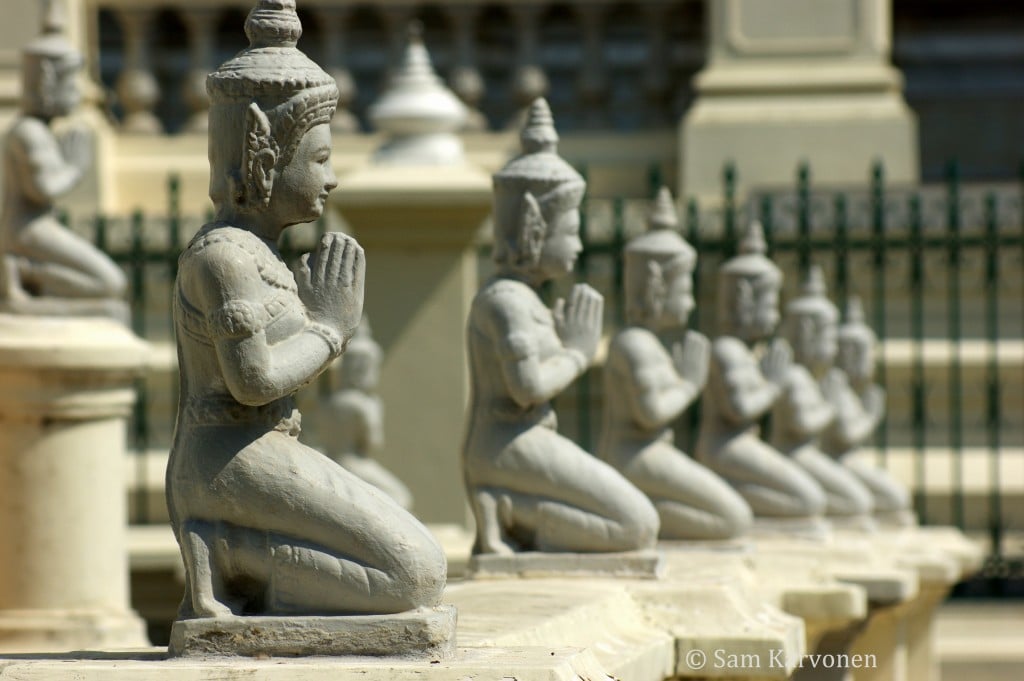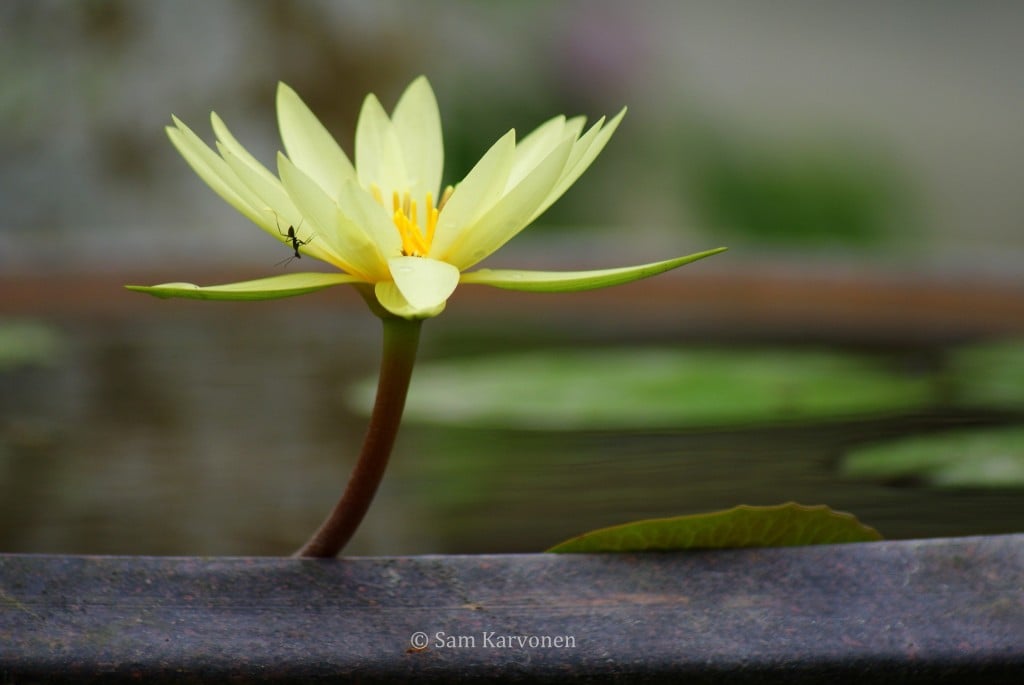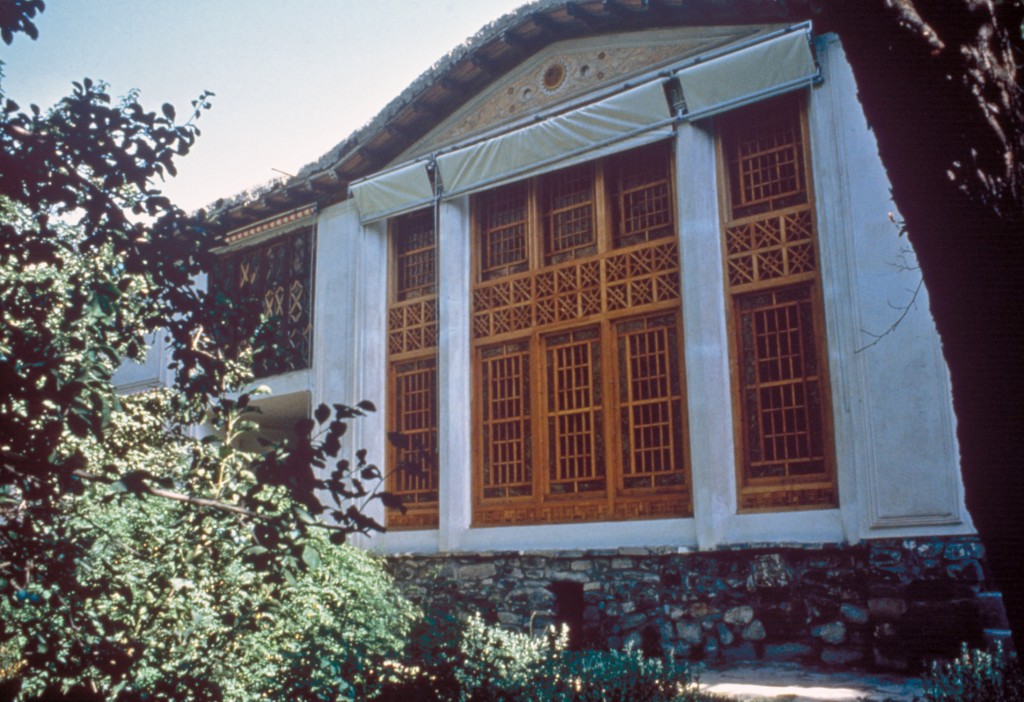I used to flop at mindfulness. Sometimes I still do. But this has been a good year (I know, I sound like a potato harvest). The notion of mindfulness, with its deep roots in the Buddhist tradition, is indeed a profound and powerful idea. ‘Abdu’l-Bahá reminds the Bahá’ís too that “prayer and fasting is the cause of awakening and mindfulness.” It goes without saying that keen mindfulness of our own behaviour, feelings and thoughts is absolutely indispensable for our personal growth.
Despite a profound concept rooted in the antiquity, “living in the here and the now” is currently probably the trendiest catchphrase of post-modern spirituality. Yet I cannot help but feel that the constant repackaging of this otherwise meaningful mantra for the sales pitch of self-help books has stripped the concept of some of its original depth and purity. Today it is proclaimed by virtually every new self-help sage. Not infrequently we find the same concept eloquently rephrased to seem like an original idea by the given author. Please don’t get me wrong! Self-help literature has its definite place in a growing global market stunted by stress, panic attacks and depression. But for me a certain line is crossed when meditation routines and breathing techniques — even the all-important virtue of mindfulness — are marketed as the panacea for all ills. I’m also apprehensive when meditation, no matter how refined and ecstatic, is confidently presented as the route to experiencing the Divine Itself, the Mystery of Mysteries. The self-help gurus are not all alike. There are those drawing on time-honoured traditions like Thich Nhat Hanh and Eckhart Tolle whose humble attitude, wise words and techniques have been a source of tranquillity and meaning for thousands. Materialistic lifestyle is fraught with anxieties, and breathing techniques as well as mental exercises centering our focus on the good available in the present may help many to momentarily let go of trivial attachments. Attachments that have assumed disproportionate importance in the frenetic rat race that is urban lifestyle. But acute awareness of our inner states, much less techniques, alone, fail to address the roots of our anxiety. In the received individualist culture healthy introspection may easily degenerate into fruitless self-absorption. Even more than meditative techniques mankind desparately needs selfless acts of service and ingenious social reforms. A more lasting tranquillity of our mind and conscience seems to need these too. Becoming overly absorbed in our own mental states, in the Bahá’í view, limits our presence in the world rather than increasing it. A painstaking quest to eliminate our own anxieties becomes, paradoxically, itself a source of pain and anxiety.
“The more we search for ourselves, the less likely we are to find ourselves; and the more we search for God, and to serve our fellow men, the more profoundly will we become acquainted with ourselves, and the more inwardly assured. This is one of the great spiritual laws of life.” – Shoghi Effendi
Thich Nhat Hanh writes quite aptly:
“Life is available only in the present moment, in the here and the now.”
The Bahá’í Writings fully endorse the fundamental notion that happiness and inner tranquillity ultimately hinge on our spiritual discernment to see purpose and meaning in every moment, even in agonizing suffering. It is a form of God-consciousness (“taqwa” in Arabic) to see His attributes and presence in all things and at all times. Bahá’u’lláh wrote in the Seven Valleys (the Valley of Wonderment) of those that have rid themselves of earthly attachments:
“At every moment he beholdeth a wondrous world, a new creation, and goeth from astonishment to astonishment, and is lost in awe at the works of the Lord of Oneness.”
Indeed, as Bahá’ís we must learn to see God in the present moment. In every atom, in every leaf and in every face. In every mundane task and every casual circumstance. But is that really enough? The Writings seem to respond with an unequivocal “Nay”. We must also learn to see God in the past, in the future and in the wider world beyond our immediate senses and geographic locations. Imám Alí worded it beautifully in a famous hadith (oral tradition):
“Nothing have I perceived, except that I perceived God within it, God before it, or God after it.”
Learning to be mindful of only the physical present and the immediately accessible may be a misunderstanding of Buddha’s intentions. It is avoided by many discerning practitioners as it results in passivity. Passivity about the prospect of a beautiful and meaningful future for all mankind, and indifference to the world beyond our own neighbourhoods, cities and lands. Accepting the world as it is may bring momentary calm. But if the virtue of resignation isn’t understood properly, it will result in a failure to be an active agent of positive change in the world. The intention of the “here and the now” exercises is soberingly good, and their underlying philosophy boasts great truth. Yet their superficial and excessively technical implementation does not cure an underlying self-centered mindset which runs diametrically counter to their original world-embracing intention.
“It is not those who lack energy or refrain from action, but those who work without expectation of reward who attain the goal of meditation.” – Krishna, The Bhagavad Gita
A meditative technique may come in very handy for temporary stress relief and emotional calm. But an obsessive quest for experiencing the Divine through esoteric self-immersion and social isolation may, inadvertently, mistake presence in the here and the now for indifference to the past, the future, and the wider world beyond our immediate sensory access. The catchy slogans on the covers of bestselling self-help books teach us about “presence” in the moment from the unwitting soap box of material luxury and political security. Does it really take that much spirituality to be present in a moment that is safe, successful and stimulating? What about deriving inner peace from the present when the present means abject poverty, crippling hunger and devastating war? Does detachment from the future and the past mean only a new kind of attachment to replace the old ones, namely attachment to a remarkably nice present! Isn’t such an attachment equally fraught with the anxiety of losing it the very moment our luck turns? It is precisely our attachment to the comforts of the physical present that makes us indifferent to the future of mankind, and to the present moment of those that languish in want. But detachment from the future and the past does not equate with indifference to the future and the past. It is the former which the likes of Krishna, Buddha and Bahá’u’lláh inculcated on us. The latter they warned us against in the severest of terms.
We should obviously not be attached to any particular future course of events. Personal futures are always unpredictable. Nor should we dwell on the “unpleasant things” of our past (or our present, for that matter). But as Bahá’ís we should always learn from the past, and live in the present by working for a better global future. We should do this while simultaneously remaining utterly unshackled by our past mistakes and undistracted by exciting future prospects, and thereby truly living in the here and the now.
The Writings assure us that we are ultimately luminous spiritual beings unrestrained by the physical constraints of time and place. In our day and age where the human soul is slowly and painfully emerging out of the instant thrill-seeking of its turbulent adolescence, it is also learning that to be present is not just about ‘now’. The present also holds a formidable power to determine the future. The present is also entirely shaped by its past. A truly mindful awareness sees all history and all future present in every moment. It sees all mankind present in every meeting. The entire human race is constantly shaped by our conduct in every human encounter, no matter how mundane and passing. Perhaps this is what it means to live in the Here and the Now in the Bahá’í style. To see every moment as an opportunity to learn about God. To find in every circumstance a possibility to serve the entire mankind. That it may become a mirror image of His Oneness.
“Every imperfect soul is self-centred and thinketh only of his own good. But as his thoughts expand a little he will begin to think of the welfare and comfort of his family. If his ideas still more widen, his concern will be the felicity of his fellow citizens; and if still they widen, he will be thinking of the glory of his land and of his race. But when ideas and views reach the utmost degree of expansion and attain the stage of perfection, then will he be interested in the exaltation of humankind. He will then be the well-wisher of all men and the seeker of the weal and prosperity of all lands. This is indicative of perfection.” – ‘Abdu’l-Bahá


